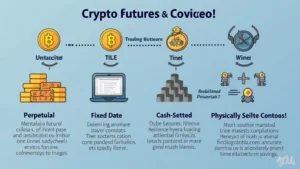Optimizing Bitcoin Transaction Speed: Essential Strategies
In an era where cryptocurrency transactions are becoming increasingly prevalent, the importance of Bitcoin transaction speed optimization cannot be overstated. With millions of users across the globe demanding faster and more efficient transaction capabilities, Bitcoin faces significant challenges. For instance, in 2024, Bitcoin transaction speeds fluctuated, causing delays for thousands of users and businesses relying on timely transactions.
This article aims to empower users with knowledge and strategies to enhance their Bitcoin transaction experiences. By diving into the core elements affecting transaction speeds, we will explore both technical optimizations and user strategies to maximize efficiency.
Understanding Bitcoin Transaction Mechanics
Bitcoin operates on a decentralized network. When a transaction is initiated, it enters the mempool—a holding area for pending transactions. Miners then select transactions from the mempool based on several factors, primarily transaction fees and size. Higher fees typically mean quicker processing times. Let’s break this down:

- The mempool holds all transactions waiting to be confirmed.
- Miners prioritize transactions that offer higher fees.
- Confirmation times can vary significantly depending on network traffic.
Factors Influencing Transaction Speed
Several variables can drastically impact Bitcoin transaction speeds. Understanding these can help users make informed decisions on optimizing transactions. Here are the main factors:
- Network Congestion: Peak times can lead to slower confirmations due to high demand.
- Transaction Fees: Adjusting fees can influence how quickly miners pick up transactions.
- Transaction Size: Compact transactions are processed faster.
Strategies for Optimizing Transaction Speed
To ensure timely Bitcoin transactions, users can adopt various strategies. Here are the most effective methods:
1. Adjusting Transaction Fees
One of the most straightforward ways to speed up Bitcoin transactions is by adjusting the transaction fee. During periods of high network congestion, offering a higher fee can incentivize miners to prioritize your transaction. Keep in mind:
- Utilize fee estimation tools to assess appropriate fee levels.
- Understand the trade-off between cost and speed.
2. Utilizing SegWit Transactions
Segregated Witness (SegWit) is a Bitcoin protocol upgrade that allows for more transactions to be included in a single block by removing signature data from the transaction.
- Benefits: Reduces transaction size, leading to lower fees and faster processing times.
- Full Compatibility: Ensure your wallet supports SegWit transactions for optimal performance.
3. Choosing the Right Time for Transactions
Network traffic fluctuates throughout the day. Monitoring these trends can help identify optimal transaction times when fees are lower and speeds are faster.
- Use blockchain explorers to analyze transaction times and fees.
- Plan transactions during off-peak hours to avoid congestion. For example, in Vietnam, the user growth in cryptocurrency is peaking on weekends, which may impact transaction speeds.
Advanced Tools for Speed Optimization
Leveraging tools can significantly impact transaction speed efficiency:
- Block Explorers: Tools like Blockchain.com allow users to view current fees and transaction status.
- Fee Estimation Tools: Services like Earn.com provide real-time insights into the estimated transaction fees.
- Transaction Accelerator Services: Consider using a transaction accelerator that can prioritize your transaction in the mempool for a fee.
Real-World Case Studies
Understanding practical applications can offer insights for future transactions. Here are a couple of examples:
- Case Study 1: In July 2024, the average Bitcoin transaction fee peaked at over $10 due to congestion. Users who adjusted their fees quickly managed to complete transactions within 20 minutes.
- Case Study 2: In Vietnam, a spike in cryptocurrency interest led to the adoption of SegWit by several wallets, resulting in transaction speed improvements of up to 60%.
The Future of Bitcoin Transactions in Emerging Markets
As emerging markets, particularly Vietnam, continue to adopt cryptocurrencies, the demand for faster transaction speeds will only grow. Reports indicate that Vietnam’s cryptocurrency user growth rate has surged by over 30% in the past year, emphasizing the need for speed optimization.
- Investment in Infrastructure: Enhancing network infrastructure will be crucial.
- Educating Users: As users become more educated about transaction dynamics, their ability to expedite transactions will improve.
Conclusion: Maximizing Your Transaction Efficiency
Bitcoin transaction speed optimization is vital for enhancing user experience and ensuring timely transactions. By understanding how fees, network congestion, and transaction technologies influence speed, users can make better decisions. For those operating in the burgeoning Vietnamese cryptocurrency market, being aware of these factors will be imperative for success.
Remember, optimizing your transaction experience depends on both technical strategies and user habits. Regularly staying updated on market trends and adapting to them will ensure that your Bitcoin transactions remain efficient.
For more insights and tools geared towards enhancing cryptocurrency transactions, visit bitcoincashblender.
Author: Dr. John Smith, a cryptocurrency analyst with over 15 published papers in blockchain technologies and a lead auditor for prominent projects.












